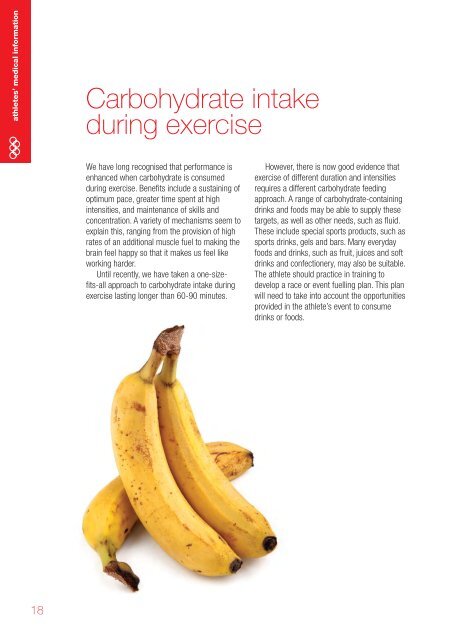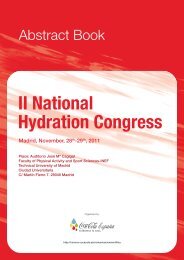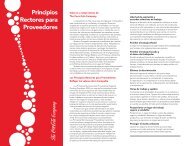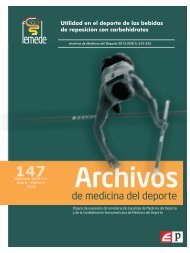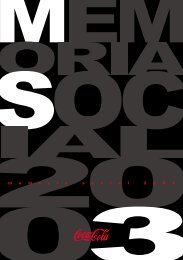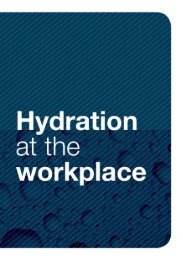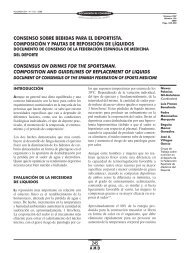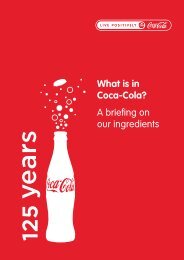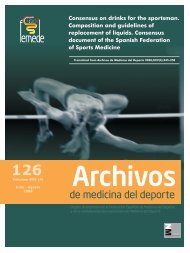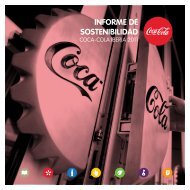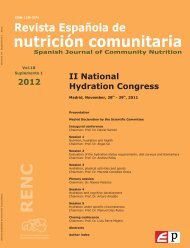Nutrition for Athletes - Coca-Cola
Nutrition for Athletes - Coca-Cola
Nutrition for Athletes - Coca-Cola
You also want an ePaper? Increase the reach of your titles
YUMPU automatically turns print PDFs into web optimized ePapers that Google loves.
athletes’ medical in<strong>for</strong>mation<br />
Carbohydrate intake<br />
during exercise<br />
We have long recognised that per<strong>for</strong>mance is<br />
enhanced when carbohydrate is consumed<br />
during exercise. Benefits include a sustaining of<br />
optimum pace, greater time spent at high<br />
intensities, and maintenance of skills and<br />
concentration. A variety of mechanisms seem to<br />
explain this, ranging from the provision of high<br />
rates of an additional muscle fuel to making the<br />
brain feel happy so that it makes us feel like<br />
working harder.<br />
Until recently, we have taken a one-sizefits-all<br />
approach to carbohydrate intake during<br />
exercise lasting longer than 60-90 minutes.<br />
However, there is now good evidence that<br />
exercise of different duration and intensities<br />
requires a different carbohydrate feeding<br />
approach. A range of carbohydrate-containing<br />
drinks and foods may be able to supply these<br />
targets, as well as other needs, such as fluid.<br />
These include special sports products, such as<br />
sports drinks, gels and bars. Many everyday<br />
foods and drinks, such as fruit, juices and soft<br />
drinks and confectionery, may also be suitable.<br />
The athlete should practice in training to<br />
develop a race or event fuelling plan. This plan<br />
will need to take into account the opportunities<br />
provided in the athlete’s event to consume<br />
drinks or foods.<br />
18


